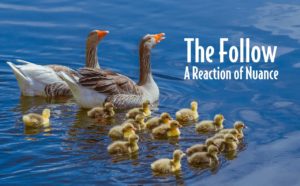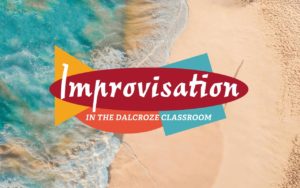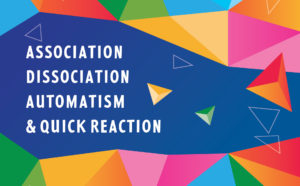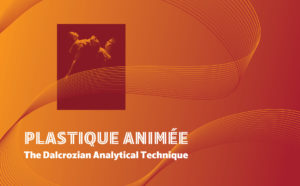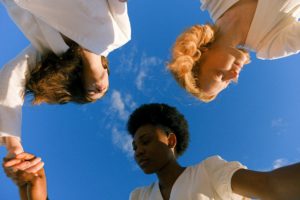“Dalcroze Connections”
The Follow: A Reaction of Nuance
The follow is a uniquely American Dalcroze teaching strategy and combines elements of association, dissociation, improvisation, and group exercise. Here, Leslie Upchurch describes the elements that comprise a follow activity, as well as several examples of how to use the follow when teaching students of various ages. My first Dalcroze eurhythmics experience was as a…
Read MoreImprovisation in the Dalcroze Classroom
Along with eurhythmics and solfège, improvisation is one part of Jaques-Dalcroze’s tripartite description of his system of music education. Often associated with on-the-spot instrumental creations, Michael Joviala illuminates how this subject reaches beyond the instrument, the exercise, and the notes. In this article, you will find diverse manifestations of improvisation within a teaching environment, as…
Read MoreBoard Chair’s Letter
Most of the work of the DSA happens in committees staffed with volunteers. It is my great pleasure to work with all these committees and their leaders. Thank you for the unique and valuable contributions of these volunteers; the DSA would not exist without you. In this edition, I want to give special thanks to…
Read MoreEditor’s Letter
The past few years I’ve spent as chair of the Dalcroze USA publications committee have been more rewarding than I could have imagined. As a mother of three young daughters, I’ve had to take a major pause from most of my music career for the time being, but I keep Dalcroze alive for myself through…
Read MoreAssociation, Dissociation, Automatism, and Quick Reaction
“Clap the beat.” “When I say change, change between your hands and feet.” It’s not often that we encounter a eurhythmics lesson without hearing one of these quintessential phrases. They are an integral part of a eurhythmics class and an indicator that students are experiencing one of several frequently used pedagogical strategies: association, dissociation, or…
Read MoreIs the Baby Improvising?
Is the baby improvising when it’s crying? Cynthia Lilley says this is a koan (a question for meditation). Might be, but I want to consider it as a real question—that is, an invitation to an answer. Certainly the baby is vocalizing, and certainly the product is unscripted and urgent. But is it improvisation? In order…
Read MorePlastique Animée: The Dalcrozian Analytical Technique
“The acquisition of all the plastic, dynamic, and agogic qualities indispensable to rhythmist or dancer, actor, or mime, will make him only an adapter, a transposer, an automaton, unless these technical qualities are controlled by a wealth of fancy, a supple, elastic temperament, a generous spontaneity of feeling, and an artistic, responsive nature. All plastique…
Read MoreGroup Activities in the Dalcroze Lesson
Perhaps the most enduring negative side effects of the recent pandemic were caused by the social isolation. Families were segregated during illnesses, schoolchildren were separated from their peers, and communities suffered permanent losses of their members. I found myself missing even the most basic, mundane tasks like grocery shopping, taking my children to local playgrounds,…
Read MoreTime, Space, & Energy
By Mary Dobrea-Grindahl, Diplôme Supérieur and Lauren Hodgson, Dalcroze License The relationships of time, space, and energy are considered a hallmark of the Dalcroze practice. These three elements are essential to our work in bringing music to life, developing body awareness and control, and understanding the physics and energy of harmony, melody, nuance, and rhythm.…
Read MoreLesson Plan: Dalcroze with Ages 3-6
Overview This is a lesson adaptable for ages 3 to 6, mid-semester. The subject is Phrase & Form. This lesson is centered around the song “The Birdies Fly Away” (adapted from Humperdinck’s “Hänsel und Gretel”). The musical goals include: The materials one needs for this class includes: Lesson Sequence Opening Circle 1. Trace rainbows in…
Read More